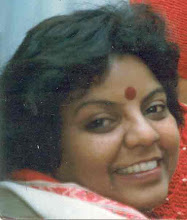

Pictures of Zaheda Hina and Attyia
Write to peace
Nirupama Dutt meets three women writing in three different languages to build bridges of peace in the subcontinent
"Being a woman, writing stories and having dissenting opinions are three afflictions in our society and I am the sum total of the three." This is how Zaheda Hina, a celebrated Karachi-based fiction writer and columnist, places herself in life and literature. A remarkable writer who has a significant fan following in India too as her writings are being widely transcribed into the Devanagri script. Having penned many memorable short stories, her novella on the Partition, Na Junoon Raha Na Pari Rahi, was acclaimed by critics and published in Hindi by a Delhi publisher.
A peace activist over long years and winner of the SAARC literary award, Zaheda Hina’s writings prove that she has always dared to write in what she believes. She was among those who boldly opposed the martial law regime of Zia-ul-Haq in Pakistan. Hers is an ornate style of writing but never at the cost of the content. She migrated with her family from Bihar at the time of the Partition to Karachi. "I know well what it is to be an outsider. I struggled to make my identity in the new land as circumstances had greatly changed for our family with the migration. An announcer for BBC in London for long years, Zaheda was one of the first to espouse the cause of peace between India and Pakistan.
Recently, she chose to link the entire South Asia be using literary tradition as the means. Her sequel to Rabindranath Tagore’s famous short story Kabuliwala is counted a masterpiece in fiction emerging from the sub-continent. Talking of the story called Kumkum Theek-thak Hai, Zaheda says: "In this story, time has moved forward and Minni of Kabuliwala fame is a granny. Her granddaughter Kumkum, a doctor, volunteers to go to Afghanistan after the US attack on the country. There she forms a fond bond with an injured Afghan militant." Written in the form of a letter to her granny in Kolkata, it is one of those rare short stories that has made waves. It indeed belongs to the tradition of Chandradhar Guleri’s Usne Kaha Thha and in a way, Krishna Sobti’s Ai Ladki. For it is not every day that a piece of long-short fiction can rise to epical scales.
Attiya Dawood, a Sindhi writer, opposes anti-women laws
Attiya Dawood, a Sindhi poet and prose writer, made her place in Karachi also with great struggle. The daughter of a middle-class family, she struggled hard but grew from strength to strength as she transformed her experiences into rich poetry and prose. Content rather than style is her forte. Pakistani critic Sikandar Sarwar says of her: "She is more than a poet, an aesthetic and sensitive voice, a woman responsive to the cries of anguish and anxiety of women abused around the world."
Attiya has often dared to raise her voice against establishment including the laws forbidding women to love. In her famous poem, To my Daughter, written especially in English, Attiya the poet says: Even if they brand you a Kari/ And condemn you to death/ Choose death but live to love. Addressing conflict and at times encouraging it is often the route to peace and Attiya has never been afraid to take it. Living in and writing in violent Karachi, Attiya says: "I was once caught in an area where a bomb burst and that experience found way in a poem that questioned the validity of bequeathing gunpowder to our children. I have often written against violence in South Asia. Peace is a must if our children are to survive." Attiya’s autobiography, Aine ke Saamne, was recently published in Hindi.
Naseem Shafai, a Kashmiri poet, voices the fear in the Valley
Naseem Shafai comes from the land that gave us women poets like Hebba Khatoon, Lal Ded and Arnimal. Yes Kashmir, of course. Lal Ded was the Sufi poet of the 14th century, Hebba belonged to the 16th and Arnimal to the 18th. For nearly two centuries after that there was no poet of prominence in the Kashmiri language. It was late 20th century that saw Naseem breaking the male citadel. Naseem, who has just stepped into her 50s, was for many years the lone woman at mushairas. "It now makes me happy to see that there are a number of girls writing in Kashmiri."
How has she reacted to the violence over long decades in the Kashmir Valley? To this question Naseem’s reply is: "As a poet and as a Kashmiri we have seen much sorrow. My journalist husband too was shot at by militants and was bed-ridden for a long time. We have witnessed death and sorrow as Kashmir became a pawn in the power game between India and Pakistan. In spite of it all, I can say with pride that my son completed his school living with our Kashmiri Pandit friends in Delhi." This poet of the lost paradise wants to see pain and fear wiped off the faces of young Kashmiris. She puts it thus in poetry: My prayer goes to them/ I’ll sing them psalms/ May the new moon/ Ever shine in their sky.





